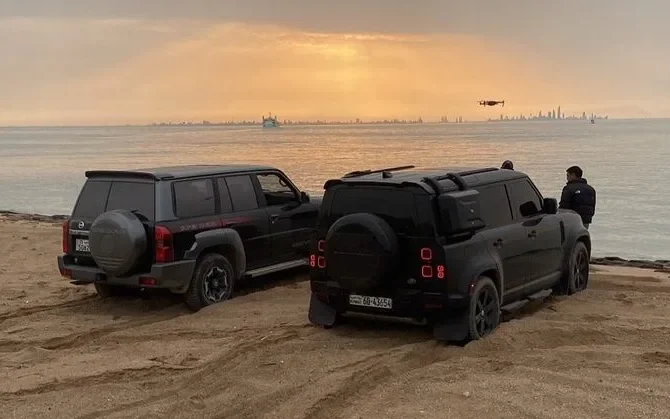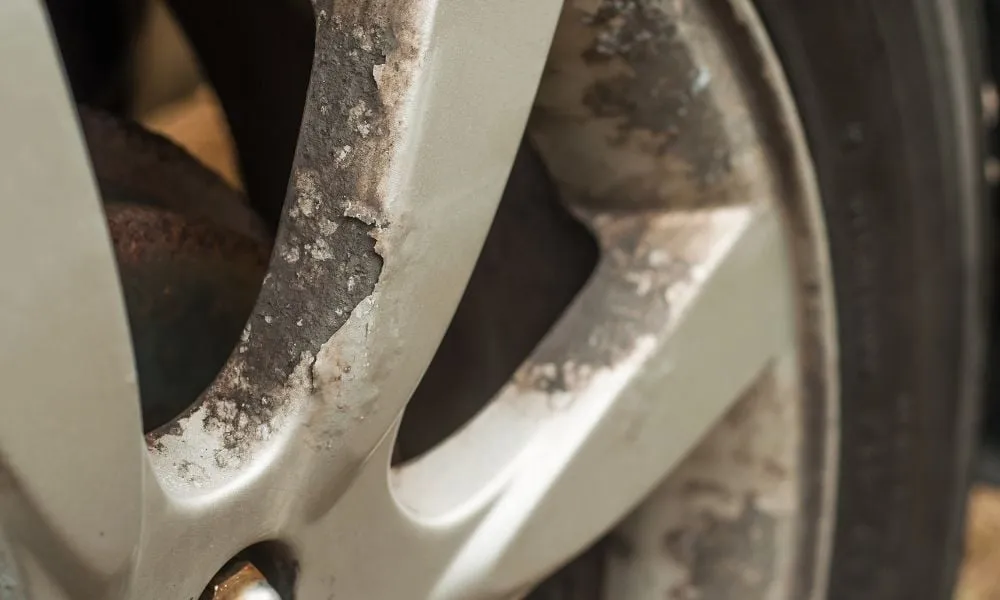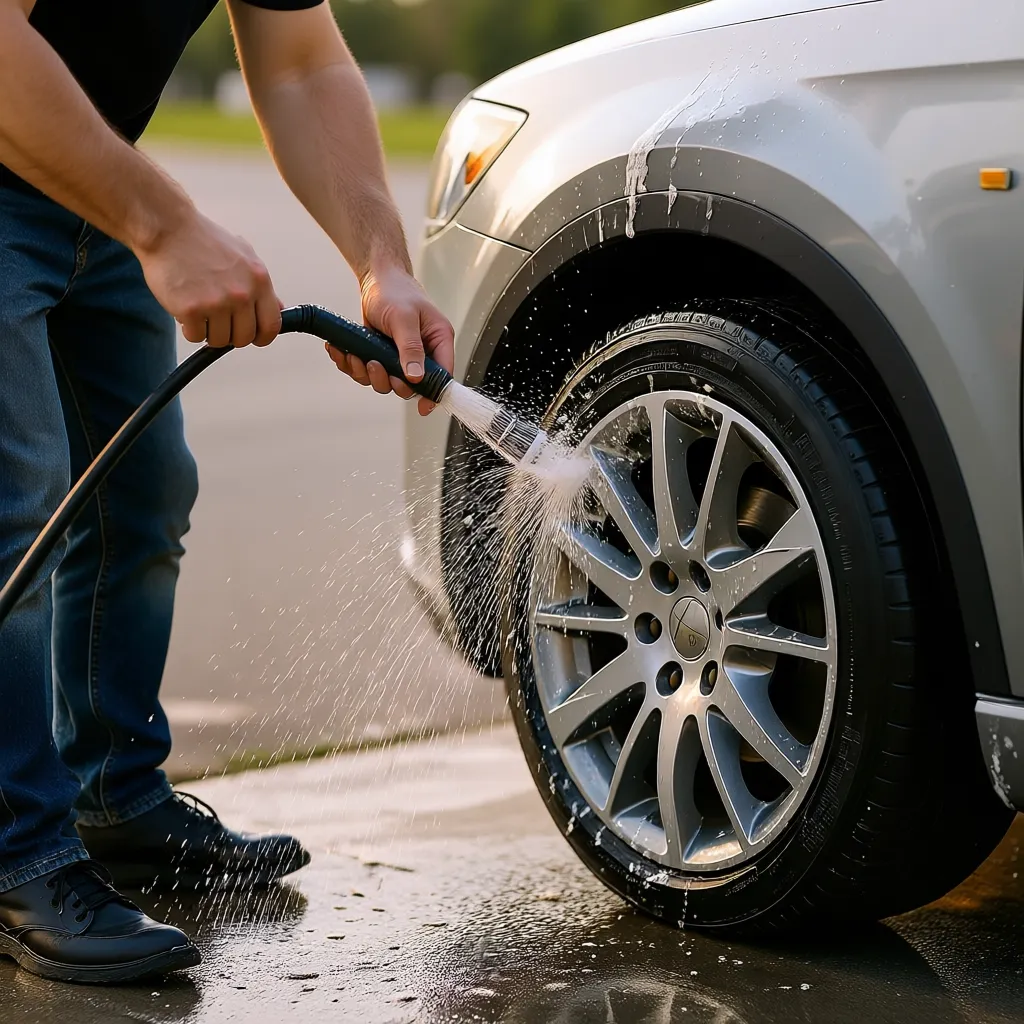Driving along Kuwait’s stunning coastline (الطرق الساحلية في الكويت) offers beautiful views of the Arabian Gulf, but it also exposes vehicles to one of the most damaging environmental factors—rim corrosion. The Effect of Kuwait’s Coastal Roads on Rim Corrosion is a serious issue that many drivers overlook, especially those who frequently drive near شاطئ الخليج العربي (the Arabian Gulf coast). The salty air, high humidity, and coastal winds accelerate metal oxidation, reducing both the performance and appearance of your rims.
Understanding Rim Corrosion
Rim corrosion occurs when metal alloys—especially aluminum and steel—react with oxygen, moisture, and salt. This reaction weakens the metal structure and causes discoloration, pitting, and in severe cases, rim failure. In Kuwait’s coastal areas, where salt concentration in the air is high, corrosion can begin within months if rims are not properly maintained or coated.
Unlike desert dust that can be washed off easily, salt particles from coastal roads cling to the metal surface. Over time, they penetrate protective layers, especially in small scratches or areas with chipped paint. Once corrosion begins, it spreads rapidly under the surface coating.
Why Kuwait’s Coastal Roads Are Especially Harsh
The Effect of Kuwait’s Coastal Roads on Rim Corrosion is amplified due to the country’s geographic and climatic conditions. Here’s why:
- High Humidity: The air near Kuwait’s coast contains significant moisture, which accelerates rust formation on metallic surfaces.
- Salt Exposure: Saltwater mist from the Arabian Gulf settles on vehicles parked or driven near the shore, leading to chemical reactions with aluminum or steel rims.
- Temperature Fluctuations: The combination of hot days and cooler nights expands and contracts the metal, making small cracks more vulnerable to corrosion.
- Sea Breeze Winds: Constant sea breezes carry microscopic salt crystals that can stick to rims, brake components, and undercarriage parts.
Signs of Rim Corrosion
Detecting early corrosion is key to protecting your investment. Drivers in Kuwait should regularly inspect for:
- White or brownish spots on aluminum or chrome rims.
- Peeling or bubbling paint around the edges of the rim.
- Air leaks from corroded bead seats (where the tire meets the rim).
- Rough or pitted surfaces that indicate advanced oxidation.
If you notice these symptoms, it’s time for immediate cleaning and professional treatment.
Preventing Rim Corrosion on Kuwait’s Coastal Roads
To minimize the Effect of Kuwait’s Coastal Roads on Rim Corrosion, regular maintenance and protective measures are essential:
- Frequent Washing: Clean your vehicle—especially rims—at least once a week, using fresh water to remove salt and sand residue.
- Protective Coating: Apply a high-quality wax or ceramic coating to seal the metal surface and prevent moisture penetration.
- Avoid Parking Near the Sea: When possible, park away from direct sea winds and humid zones to limit salt exposure.
- Regular Inspections: Check for small scratches or chips that can allow corrosion to start beneath the surface.
- Choose Corrosion-Resistant Rims: Brands that use powder-coated finishes or forged aluminum alloys are better suited for Kuwait’s coastal conditions.
If you live or drive near Kuwait’s coast, don’t wait for corrosion to ruin your rims. Visit FormulaWheel today to explore corrosion-resistant rims, cleaning kits, and maintenance services tailored for Kuwait’s environment.
Protect your rims, enhance your car’s performance, and drive with confidence—no matter how close you are to the sea.
Recommended Rim Brands for Coastal Conditions
At FormulaWheel, we recommend high-performance rims specifically designed for harsh environments:
- Braid Wheels: Known for their motorsport-grade construction and durable coatings, ideal for both city and coastal driving.
- KMC and Fuel Wheels: Offer strong finishes that resist pitting and oxidation even after extended exposure to salt and moisture.
- RRW (Relations Race Wheels): Engineered with corrosion-resistant alloys and deep finishes, providing long-lasting performance and style.
Each of these brands combines functionality with aesthetics—perfect for Kuwait’s mix of urban highways and coastal routes.
Maintenance Tips for Long-Lasting Rims
- Avoid Harsh Cleaners: Use pH-neutral rim cleaners; acidic products can strip protective layers.
- Dry Thoroughly: After washing, always dry rims completely to prevent water spots or residue buildup.
- Balance and Rotate Tires: Regular balancing (توازن الإطارات) and rotation prevent uneven wear and keep rims in better condition.
- Inspect During Tire Changes: Ask technicians to check for corrosion under the tire bead and apply anti-corrosion paste if necessary.
The Economic Impact
Ignoring the Effect of Kuwait’s Coastal Roads on Rim Corrosion can lead to costly repairs. Damaged rims can cause tire leaks, poor handling, and reduced fuel efficiency. Over time, replacing corroded rims is far more expensive than maintaining them regularly. For taxi fleets, delivery services, and daily drivers in مدينة الكويت, prevention is a smarter investment.
Conclusion
The Effect of Kuwait’s Coastal Roads on Rim Corrosion is a real and growing concern for drivers across the region. Salt-laden air, humidity, and fluctuating temperatures can quickly degrade even the strongest alloys if not properly protected. By investing in high-quality rims, performing routine maintenance, and using protective coatings, you can extend your wheel lifespan and maintain your vehicle’s beauty.
At FormulaWheel, we understand Kuwait’s driving conditions and offer solutions designed to protect and perform. Whether you drive along كورنيش الكويت (Kuwait Corniche) or through city streets, our products ensure your rims stay strong, stylish, and corrosion-free.
FAQ – The Effect of Kuwait’s Coastal Roads on Rim Corrosion
- What causes rim corrosion on Kuwait’s coastal roads?
The main cause of corrosion is the combination of salt, humidity, and high temperature. Salt particles from الهواء الساحلي (coastal air) react with metal surfaces, especially aluminum and steel, leading to oxidation and rust. - How fast can rim corrosion occur near the sea?
In Kuwait’s coastal areas, corrosion can start within just a few months if the rims are not regularly cleaned or coated. Constant exposure to هواء البحر (sea breeze) accelerates metal oxidation, especially during summer months. - Can rim corrosion affect driving safety?
Yes. Corrosion weakens the rim’s structure, which may lead to air leaks, vibration, and even rim cracking. Over time, this reduces both safety and handling performance, especially at high speeds on highways near مدينة الكويت. - How can I protect my rims from corrosion?
You can reduce the Effect of Kuwait’s Coastal Roads on Rim Corrosion by:
• Washing rims weekly with fresh water.
• Applying ceramic or wax coatings.
• Avoid parking too close to the sea.
• Regularly inspecting for scratches or chipped paint. - Which rim brands are most resistant to corrosion in Kuwait?
Brands like Braid Wheels, KMC, Fuel, and RRW offer anti-corrosion coatings and forged aluminum construction, making them ideal for Kuwait’s coastal conditions. You can find these models at FormulaWheel, which specializes in high-quality, climate-adapted rims. - Can I repair a corroded rim, or should I replace it?
Minor corrosion can often be repaired by sanding and recoating the affected area. However, severe rust or structural damage requires full replacement. A professional inspection is recommended at a trusted shop like FormulaWheel Service Center. - Does sea salt affect alloy and chrome rims differently?
Yes. Chrome rims are more prone to pitting and peeling, while alloy rims resist corrosion better but can still oxidize over time. Applying protective coatings and regular cleaning are essential for both types. - How often should rims be inspected in coastal areas?
Drivers in Kuwait should inspect rims every three months, especially if they live or park near the coast (المناطق الساحلية). Frequent maintenance prevents long-term damage and ensures better performance.



